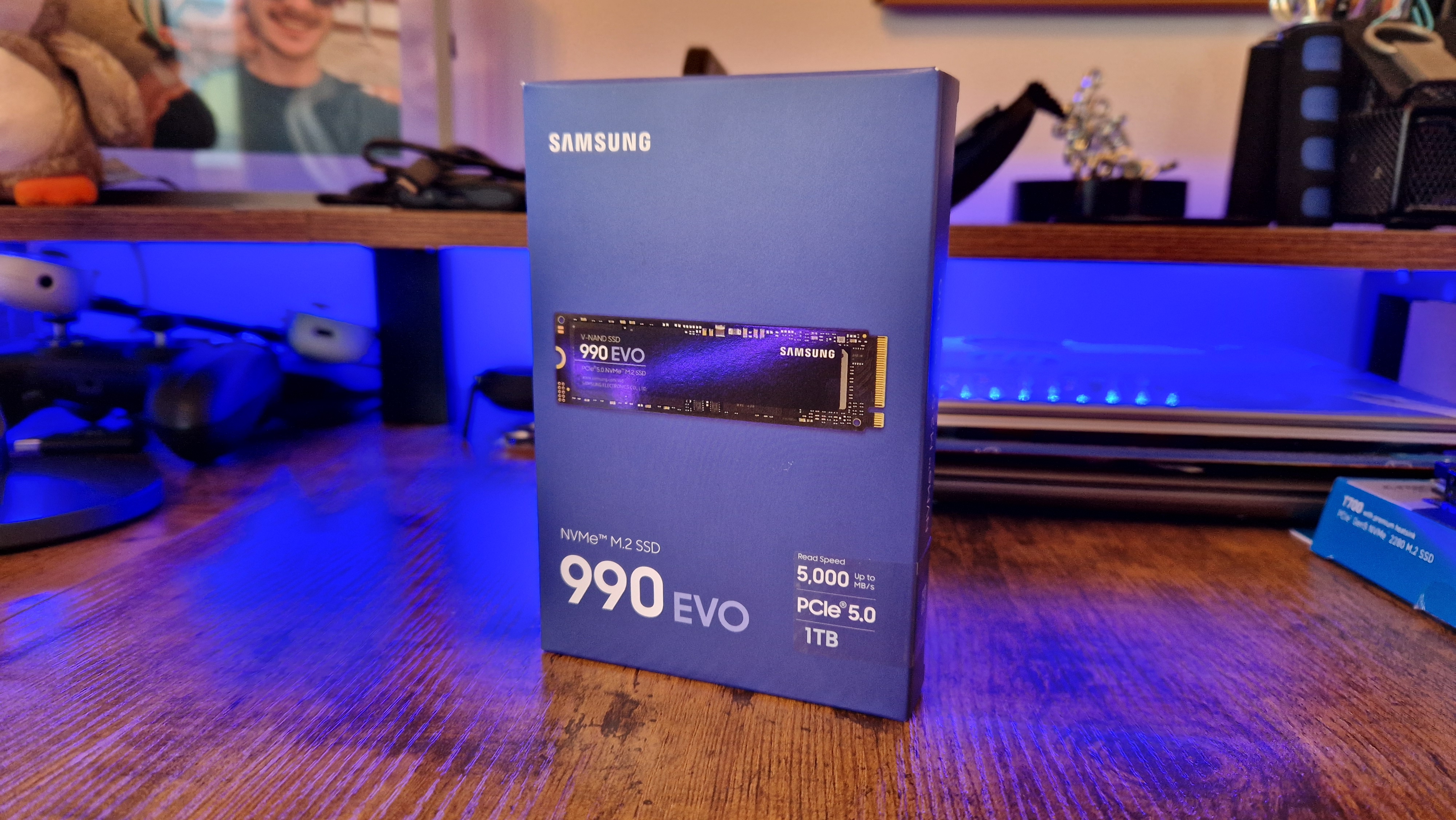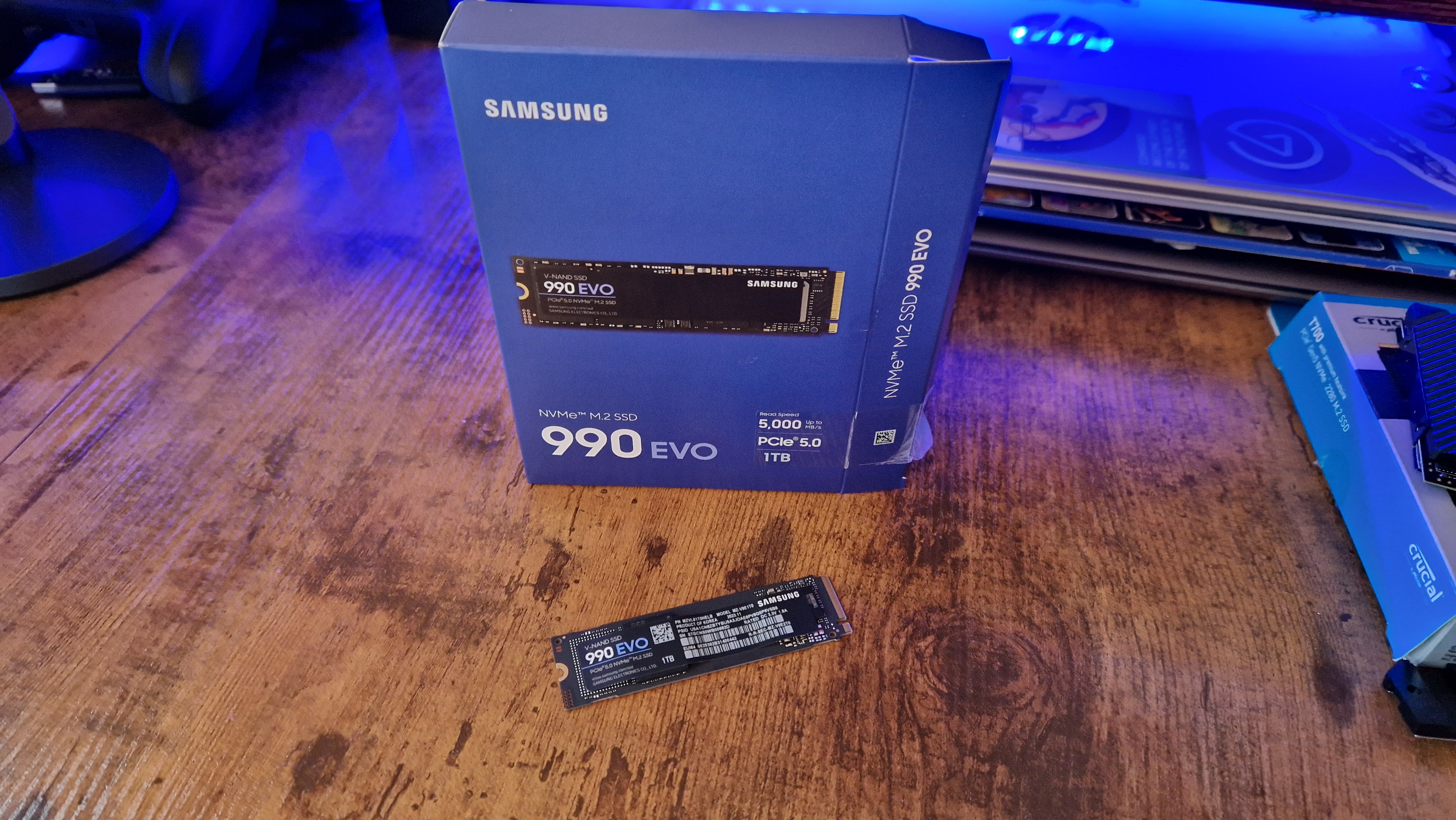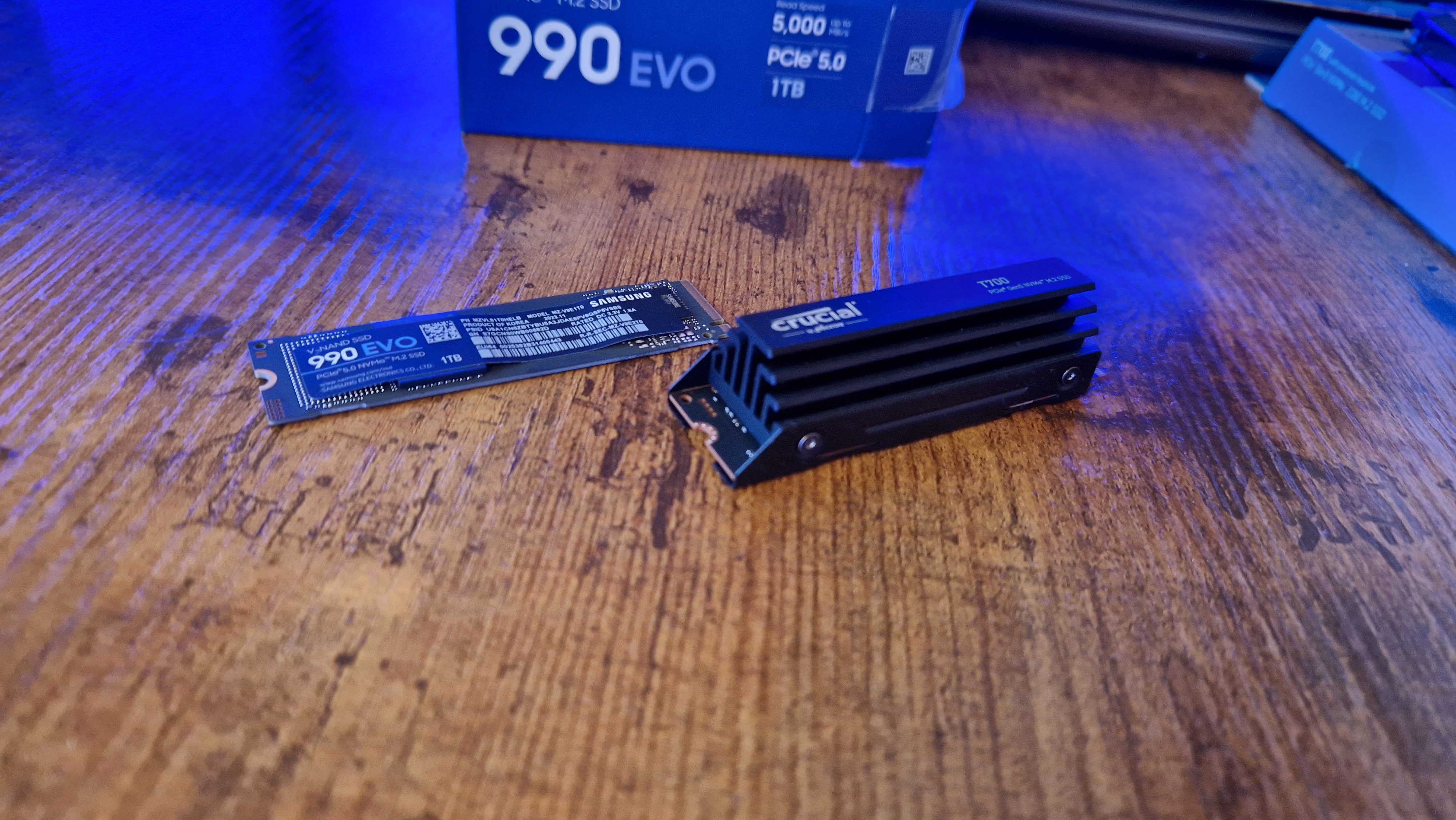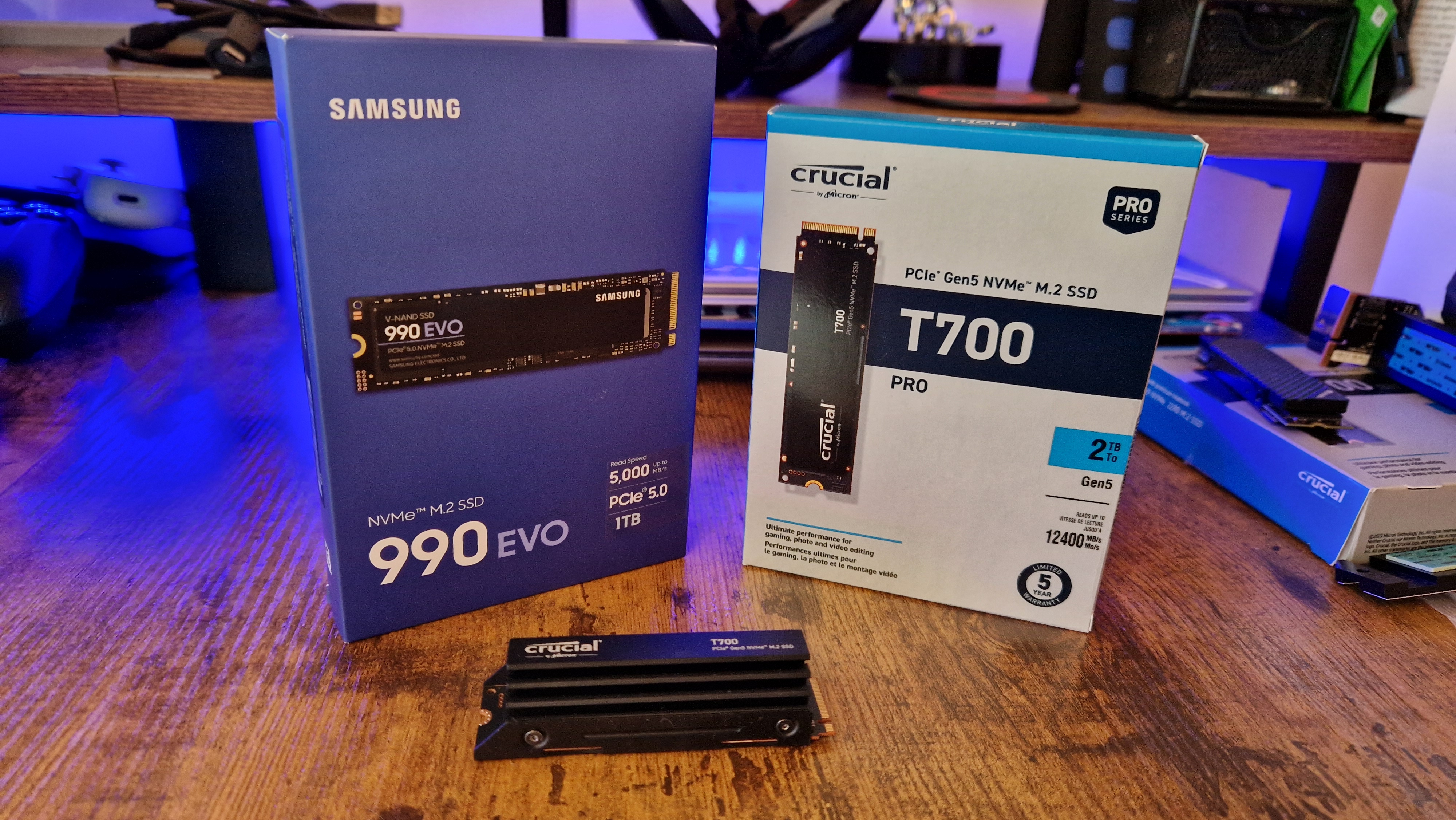
In 2023, we saw the dawn of PCIe Gen 5 SSDs in the mainstream market. This time last year, the first few drives were trickling their way into Asian markets, and as motherboard compatibility started to become a bit more common, bigger brands started taking a crack at them.
Now, we have a few models that are widely available. ADATA's Legend 970 has its own cooling fan built into its heatsink, and the Crucial T700 Pro has reviewed well but has been met with mixed reports from consumers. These Gen 5 SSDs are still in their early days, and their volatility when it comes to size, cooling, and speeds means they're still only perched to become the best SSDs for gaming.
However, Samsung has now thrown its hat in the ring, yesterday announcing the Samsung 990 Evo, the first-ever hybrid interface SSD. Sporting 4x PCIe Gen 4 lanes and 2x PCIe Gen 5 lanes, it can work with both architectures while offering the same bandwidth to either.
Essentially, when the 990 EVO is connected to PCIe Gen 5 systems, it will connect with its speedy two lanes automatically, but there will be no performance drop compared to its four Gen 4 lanes. With that in mind, the 990 EVO can even be used with compatible laptops. This clever design will also reduce power demands and temperatures, which Gen 5 SSDs are known to struggle with.

This is certainly an interesting approach to take with the blazing-fast architecture of PCIe 5.0, and it seriously bucks the trends we've seen so far.
For reference, an everyday Gen 4 NVMe drive, like one of the best PS5 SSDs for example, is capable of read speeds of up to 7,400MB/s. Gen 5's heavily boasted speeds are over the 1GB/s mark, so fairly ridiculous. The new 990 EVO is much more subdued, however, with quoted read speeds of 5,000MB/s regardless of whether you grab it in 1TB or 2TB shape.
Before that sparks a fit of gamer rage at Samsung, I'll add that this isn't a drive that's trying to target the uppermost echelon of gaming PCs. This is Samsung's EVO range, which offers slightly more reserved speeds, authentic homecooked architecture, but more reasonable prices. Indeed, if you compare speeds directly, the 980 PRO and 990 Pro drives are both faster than this new EVO option, but if you try to get hold of either, you're still looking at upwards of $80 for 1TB worth of 2-year-old architecture. I haven't been given US prices for the new 990 EVO, but in the UK, it'll set you back £100.99 for 1TB and £169.99 for the 2TB model.
For a drive that's somewhere in between a Gen 4 and Gen 5 SSD, its price does reflect that somewhat. To be completely honest with you though, this could offer up some serious value when it comes to futureproofing.


I'm someone who reviews memory and storage devices for work, and even with access to a few beefy gaming PCs, I've had a serious struggle trying to test out Gen 5 SSDs because of their limited motherboard compatibility and obnoxious heatsinks. If you don't need the absolute best speeds out there in a solid-state drive just now but know you'll want to upgrade your motherboard and PC at some point, the 990 EVO might be the perfect springboard for you to make that transfer.
For content creators, photographers, or graphics designers, a read speed of 5,000MB/s isn't going to hamstring you. Even for gaming, you're still giving yourself solid loading times - the PS5 SSD minimum read speed may technically be above this (5,500MB/s), but not by much in practical terms.
We wouldn't recommend putting a drive like this, nor any Gen 5 drive inside your PS5 anyway. As some YouTubers have found, Sony's system doesn't like them, and Gen 5 SSDs are not backwards compatible with Gen 4 M.2 bays.
Regardless, I'm more interested in the architecture of a drive like this, because it shows that there is more than one approach to tackling new technology. While this is technically Samsung's first Gen 5 SSD, I'm certain that when the first PCIe 5.0 "PRO" model arrives, it's going to be a lot more stable than the rivals we've seen already because the brand has taken a more measured approach to begin with.
What's more, I applaud Samsung for offering consumers a generational springboard thanks to clever technical innovation. That's something we don't often see when it comes to the best CPUs for gaming, or indeed the best RAM for gaming.
Looking for something more portable? Check out the best external hard drives for gaming, the best PS5 external hard drives, and the best Xbox Series X hard drives.







